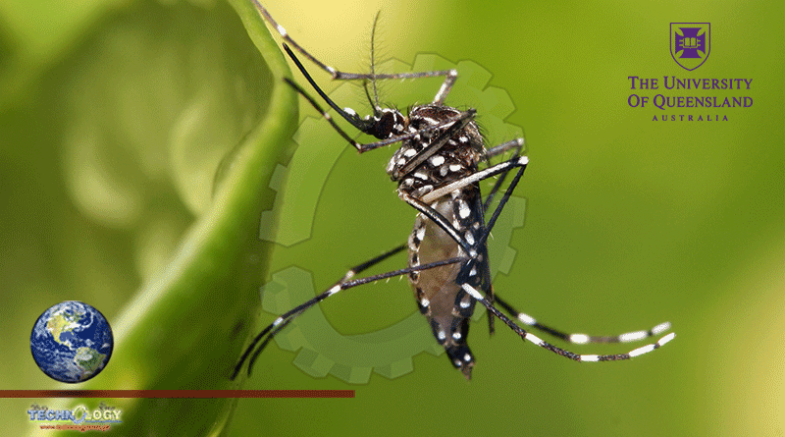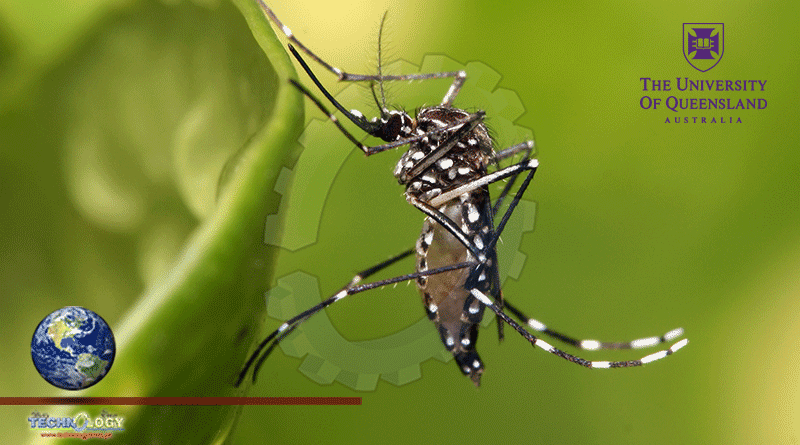University Of Queensland (UQ) Found A Bacteria Can Successfully Sterilize Invasive, Disease-Carrying Mosquitos (Aedes Aegypti) Spread Dengue

The results are in for an Australian-led research team that used bacteria to sterilize male mosquitoes, An international team led by Australian researchers from CSIRO, James Cook University, and the University of Queensland (UQ), have found that a bacteria can successfully sterilize invasive, disease-carrying mosquitos (Aedes aegypti) that spread dengue, Zika and yellow fever. The researchers used the bacteria Wolbachia to sterilize 3 million male mozzies and released them into a trial site. The males promptly went off to find females to mate with. One year later, the team returned to the trial sites in Mourilyan, Queensland, and found two sites were almost completely devoid of mozzies. “During the trial, we saw over 80% of the mosquito population suppressed across our three trial sites,” says Nigel Beebe of CSIRO and UQ. “When we surveyed the sites the following year, we were very encouraged to see the suppression still in effect, with one of our most productive towns for Aedes aegypti almost devoid of this mosquito with a 97% reduction across the following season.
“One year on, the mosquito population at the second trial site remained substantially suppressed, while the population fully recovered at the third site. “We are currently investigating the differences observed in the following mosquito season as they are incredibly informative in further developing this technology and in modelling how we could remove this exotic virus-transmitting pest in other locations worldwide.” The researchers found that the mozzie population dropped because the Wolbachia bacteria killed off eggs, dramatically decreasing the number of larvae that eventually grew to adulthood. “The creation of our Health and Biosecurity team back in 2016 meant we were prepared for COVID-19, and that preparation is paying off across other biosecurity threats like mosquitos which spread some of the world’s most serious diseases,” says Larry Marshall, CSIRO’s chief executive officer.
“Over 40% of humans suffer from mosquito-spread diseases, so it’s an opportunity for Australia to develop environmentally-friendly mosquito control tools to tackle current and future mosquito incursions. “By working with Australian and international partners we can tackle two of Australia’s greatest challenges at once – health and security – with breakthrough research translated into effective global export solutions. “CSIRO is leveraging great Australian science to create new technologies to make this approach more cost effective and suitable for the climates of less developed countries that suffer most from mosquito-borne viruses, strengthening and protecting our region.”
This news was originally published at Cosmos Magazine
